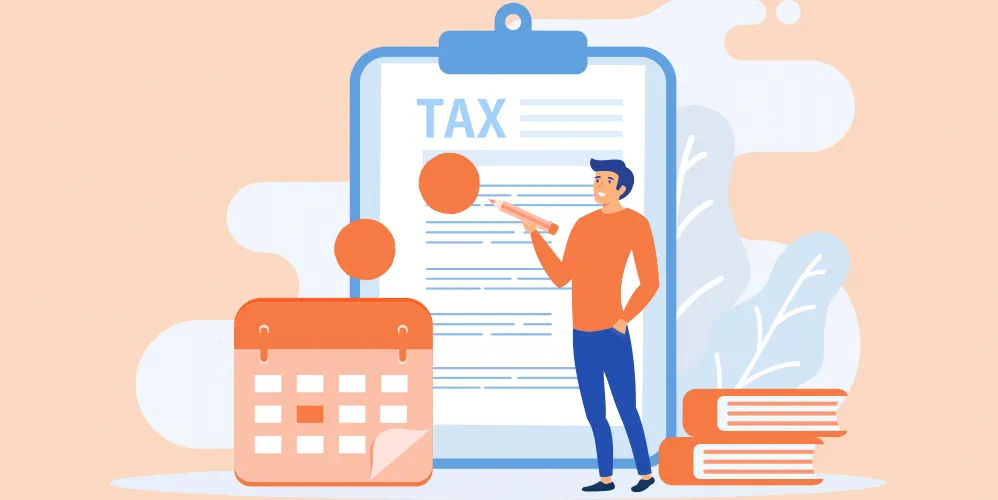
Premature Withdrawal of Fixed Deposit: Penalty Charges & Alternative Options
10 Mar 2023

Table of Content
-
What is Premature Withdrawal?
-
What is the Premature Withdrawal of a Fixed Deposit?
-
What are the Penalty Charges for Premature Withdrawal of FD?
-
How to Calculate Penalty on Premature Withdrawal of Fixed Deposit?
-
Alternatives to Premature Withdrawal of Fixed Deposit
-
FD Without Premature Withdrawal Facility
-
How to Close FD Prematurely
-
Disadvantages of Premature Withdrawal
-
Choosing the Right FD
-
Premature Withdrawal of Fixed Deposit FAQs
Most savers like to earn some income passively over and above their regular income flow. Fixed deposits offer them a diversification route for investing their savings. When a saver invests in a fixed deposit, they earn a guaranteed income over a fixed term of the investment. Fixed deposits, also known as term deposits, are suitable for both; working professionals and retired senior citizens. Fixed deposits range in tenor from 7 days and go all the way up to 10 years. The interest rate offered by different banks and financial institutions varies according to the tenor as well as the credit rating of the bank. Each bank has its own terms and conditions for offering fixed deposits to the members of the public.
Visit: Bank of Baroda to know more.
What is Premature Withdrawal?
The term Premature Withdrawal in any fixed-period investment refers to the removal of the investment before the maturity date. Personal circumstances or unanticipated exigencies may force an investor to redeem or make an early withdrawal from his fixed-period investment. It could be from any fixed-period investment, including deposits, endowment insurance policies, post office savings etc. An investor can also make a premature withdrawal from any investment scheme which has a fixed lock-in period. There are levies of penalties on such premature or early redemptions. These penalties are deducted from the final interest payment or redemption amount.
What is the Premature Withdrawal of a Fixed Deposit?
Let us assume that an investor has a fixed deposit of Rs. 5 lakhs with the Bank of Baroda for a fixed period of six months. Due to certain personal exigencies, unforeseen circumstances may force the investor to make an FD early withdrawal. When an investor makes premature withdrawal, the bank imposes a penalty deduction on his interest for the premature withdrawal.
What are the Penalty Charges for Premature Withdrawal of FD?
Normally, banks impose a penalty ranging from 0.50% to 1% as a fixed deposit early withdrawal penalty, depending on the bank. Banks may also not impose penalties on deposits held for a certain minimum period. For instance, the Bank of Baroda imposes a penalty of 1% in case of domestic term deposits which vary between Rs 5 lakhs and Rs 1 crore. If an investor withdraws a fixed deposit of less than Rs. 5 lakhs after being held for more than 12 months after the deposit date, there is no penalty in such a case. Bank of Baroda’s time deposits are of two types: callable and non-callable. Callable FDs are FDs with premature withdrawal facility. In non-callable deposits, the Bank of Baroda levies 2% as the penalty charge for premature withdrawal of the deposit.
How to Calculate Penalty on Premature Withdrawal of Fixed Deposit?
An investor deposits Rs 7.5 lakhs for two years with the Bank of Baroda. If the customer withdraws the deposit after 6 months. Say for example, the rate of interest on the deposit is 6% for 6 months. Due to the premature withdrawal of the deposit, his interest rate is now reduced by 1% of the eligible rate as penalty i.e. If he prematurely withdraws the deposit after 6 months the applicable rate of interest will be 5% for 6 months, then the interest he will earn will be 5% X 6/12 X 750000. This will be equal to Rs. 18750 /- Thus the FD premature withdrawal penalty is Rs 3750.
Alternatives to Premature Withdrawal of Fixed Deposit
The investors invest in a bank fixed deposit for a defined motive, i.e., to accumulate fixed savings. Breaking a fixed deposit prematurely defeats this saving purpose. Instead of breaking the fixed deposit, they can explore alternatives to meet their emergency financial requirements. Let us examine these:
- Using a credit card: Most investors hold credit cards to meet their spending requirements. Most banks, including Bank of Baroda, issue credit cards. One of the chief advantages of credit cards is that investors can borrow a loan on a credit card. They can easily borrow on their credit card to meet the urgent financial expenditure if they have a good credit score and credit history.
- Loans against fixed deposits: Most banks allow investors to obtain loans against fixed deposits. Banks generally provide loans up to 90% of the fixed deposit amount. The bank gets a lien over the fixed deposit for the loan period for such loans. Normally, the investors can avail of such loans at interest rates which exceed the fixed deposit rates by 1%-2%. The loans against fixed deposits are also cheaper than regular personal loans granted by banks.
- Using the contingency fund: Most investors have contingency or emergency funds. These funds are normally used to meet unforeseen personal expenditures. The investor can use such emergency funds to meet unforeseen personal expenditures.
- Liquidating other investments: Investors may have other investments in their portfolio in other financial assets like stock investments etc. They should explore whether these investments can be liquidated profitably to meet urgent financial expenses.
FD Without Premature Withdrawal Facility
Not all banks offer FD without premature withdrawal facility. These are high-value time deposits. These deposits are normally known as non-callable fixed deposits. Normally such fixed deposits can be Rs. 2 crores or higher. These non-callable deposits are governed by their terms and conditions, varying from bank to bank. These deposits also have differential interest rates compared to callable fixed deposits.
For some banks, such deposits can have lower minimums, like Rs 15 lakhs. These non-callable deposits are important in the bank’s asset-liability management. Breaking such deposits has many conditions to be met before they can be broken.
In the Bank of Baroda, these deposits can be prematurely withdrawn if the following conditions are satisfied: -
- Bank has made such deposits erroneously.
- If there is auto-renewal of such non-callable deposits in non-callable again.
- If the investor wants to change the nature of the deposit within 15 days of making such a deposit.
- If the customer unfortunately dies.
- If government bodies, make the non-callable deposit.
Bank of Baroda has a minimum of Rs 15.01 lakhs for non-callable deposits for resident investors. For NRIs, the minimum investment is Rs 2 crores. The non-callable deposits earn an additional interest of 15 basis points if the amount is less than Rs 2 crores. If the amount is above Rs. 2 crores, the additional interest spread is 10 basis points. All other terms which govern normal, callable deposits also apply to non-callable deposits.
The bank permits premature withdrawal of such deposits with a payment of a penalty of 2%, subject to terms and conditions. Refer to the Bank of Baroda to know more.
How to Close FD Prematurely
There are two methods of closing a deposit prematurely. Some banks allow both the offline and the online mode of closing the deposit. In case of premature online closure of deposits, the investor must have opened the deposit online. In the offline mode, the investor has to visit the branch where the deposit was originally placed. Before closing the fixed deposit, he has to submit all the deposit-related documents, including the deposit receipt, premature withdrawal application, and other identity and address proof.
In the case of a Bank of Baroda fixed deposit, the investor needs to do the following in case of an offline mode: -
- Visit the Bank of Baroda branch where the deposit was originally opened.
- Fill in and submit the premature deposit withdrawal form.
- Submit the ID and Address proof documents.
- Complete all formalities related to closing the deposit.
In the case of FD opened by internet or mobile banking, Bank of Baroda fixed deposit premature withdrawal online is possible. It is currently available according to the above conditions. The investor has to comply with the RBI circular on premature withdrawal of fixed deposits.
Disadvantages of Premature Withdrawal
As mentioned before, investors open fixed deposits for a defined saving purpose. Fixed deposits provide a guaranteed return with no volatility. Little or minimum risk is associated with deposits. In case of premature FD closure, they face many disadvantages: -
- Loss of full interest payment
In case of an FD premature withdrawal, the investor loses out on his full interest payment.
- Payment of penalty:
In case of FD withdrawal prematurely, the investor has to pay the penalty before a minimum term has elapsed. These penalties can range from 0.50% to 2%, varying from bank to bank. Penalties vary according to bank policies.
- Liquidation of an asset:
When an investor liquidates his deposit to meet his personal expenditures, he reduces his overall net worth. This may also affect his overall cash flow and budget projections of income.
- Premature withdrawal may be a cumbersome process:
Sometimes, physically going to the bank branch and making the premature withdrawal may be time-consuming and cumbersome.
Choosing the Right FD
Choosing the right FD requires investment skills. The investor has to evaluate the bank credit rating, the tenor, whether interest should be fixed or floating, and the number of FDs etc.
- Bank credit rating: The investor has to check the bank's credit rating. The higher the credit rating, the more assured the safety of principal and interest.
- Tenor: Short Term FDs pay a lower interest rate, whereas longer FDs pay a higher rate. All interest rates fluctuate according to the market interest rates. The investor must select the tenor according to his convenience.
- Fixed or floating interest rates: In the case of fixed interest rates, the interest rate remains the same despite the fluctuations in the market interest rate. In the case of floating interest rates, the interest rates reset according to the changes in the market interest rate.
- Opening multiple FDs: The investor may choose to place a single deposit. He can also break up the deposit amount into multiple small deposits among different banks.
Premature Withdrawal of Fixed Deposit FAQs
1. What is the penalty for premature withdrawal of a fixed deposit?
A. Bank of Baroda imposes a penalty of 1% in callable deposits and 2% in non-callable deposits.
2. Can I withdraw money from a fixed deposit before maturity?
A. Yes, you can prematurely withdraw from a fixed deposit by paying the penalty in most cases. Refer to the RBI guidelines on premature withdrawal of fixed deposit.
3. Can I partially withdraw FD before maturity?
Some of the Banks are having this kind of facility of partial withdrawal of FD before maturity. Bank of Baroda is having this facility in BOB Suvidha scheme.
A. Yes, you can make a partial withdrawal from a fixed deposit. The remaining amount is deposited as a new deposit at the prevailing interest rates according to RBI guidelines premature withdrawal fixed deposits.
4. Is premature closure facility applicable for tax saver fixed deposit?
A. No premature withdrawal tax-saver deposits are available. They have to remain deposited for the entire 5-year term. They can be withdrawn only at maturity. Refer to RBI circular on premature withdrawal of tax saver fixed deposit.
Popular Articles
Tag Clouds
-
Disclaimer
The contents of this article/infographic/picture/video are meant solely for information purposes and do not necessarily reflect the views of Bank of Baroda. The contents are generic in nature and for informational purposes only. It is not a substitute for specific advice in your own circumstances. Bank of Baroda and/ or its Affiliates and its subsidiaries make no representation as to the accuracy; completeness or reliability of any information contained herein or otherwise provided and hereby disclaim any liability with regard to the same. The information is subject to updation, completion, revision, verification and amendment and the same may change materially. The information is not intended for distribution or use by any person in any jurisdiction where such distribution or use would be contrary to law or regulation or would subject Bank of Baroda or its affiliates to any licensing or registration requirements. Bank of Baroda shall not be responsible for any direct/indirect loss or liability incurred by the reader for taking any financial decisions based on the contents and information mentioned. Please consult your financial advisor before making any financial decision.










